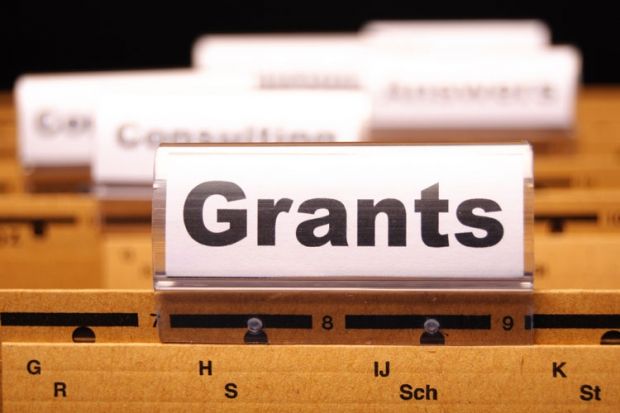Royal Society
Wolfson Research Merit Awards
Awards are worth £10,000-£30,000 a year, which is a salary enhancement
- Award winner: Mark Gross
- Institution: University of Cambridge
Mirror symmetry and tropical geometry
- Award winner: Jeremy Harvey
- Institution: University of Bristol
Theoretical models of the kinetics of homogeneous catalysis
- Award winner: Lin Li
- Institution: University of Manchester
Particle lens-based laser nano-fabrication and super-resolution imaging
Engineering and Physical Sciences Research Council
- Award winner: David Parker
- Institution: Durham University
- Value: £357,832
Eurotracker dyes: synthesis and application in functional cell imaging
- Award winner: Rainer Cramer
- Institution: University of Reading
- Value: £631,381
Development of a novel MALDI mass spectrometer and technology for the generation of multiply charged ions at high sensitivity
Action Medical Research
- Award winner: Volker Straub
- Institution: Newcastle University
- Value: £129,298
Duchenne muscular dystrophy – investigating a new drug treatment
Leverhulme Trust
International Network Grants
Social sciences
- Award winner: Kieran McCartan
- Institution: University of the West of England
- Value: £52,454
Community engagement and partnership working with sex offenders
National Institute for Health Research
Public Health Research programme
- Award winner: Russell Viner
- Institution: University College London
- Value: £1,476,018
INCLUSIVE trial: Initiating change locally in bullying and aggression through the school environment
- Award winner: Alastair Leyland
- Institution: University of Glasgow
- Value: £145,532
Evaluation of health in pregnancy grants in Scotland
- Award winner: Mark Tully
- Institution: Queen’s University Belfast
- Value: £318,573
A feasibility study and pilot RCT of a peer-led walking programme to increase physical activity in inactive older adults: Walk With Me Study
In detail

Health Technology Assessment programme
Award winner: Miranda Pallan
Institution: University of Birmingham
Value: £543,599
Development of a culturally adapted weight management programme for children of Pakistani and Bangladeshi origin
The study is to develop and test a programme for parents with an overweight/obese child that aims to help them reduce their child’s weight through an improved diet and increased activity levels. In Birmingham, such a programme is provided by the NHS but it has not been very successful in some minority ethnic groups, particularly Bangladeshi and Pakistani (BP) families, who tend to start the programme but then drop out part-way through. The team aims to adapt the existing children’s weight management programme to ensure relevance to BP families and plans to explore the reasons why these families do not finish the programme. They will use previous experience to develop a modified children’s weight management programme that is tailored for BP communities, but also suitable to be delivered in a diverse population.
Register to continue
Why register?
- Registration is free and only takes a moment
- Once registered, you can read 3 articles a month
- Sign up for our newsletter
Subscribe
Or subscribe for unlimited access to:
- Unlimited access to news, views, insights & reviews
- Digital editions
- Digital access to THE’s university and college rankings analysis
Already registered or a current subscriber? Login

